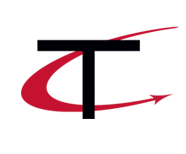As a conference organizer or event planner, you have so much on your plate while trying to create, plan, and execute your corporate events. It can be stressful and overwhelming, to say the least.
Corporate events come in all shapes and sizes. Some conferences are purely internal, and funded completely by your company. Some are ticket-based and charge an admission fee, carrying the hope of generating a profit. Some events are a mix of both, with revenue intended to simply off-set the cost of the event.
Regardless of your corporate event’s “flavor,” event budgeting can be a real chore. It is, however, critically important if you want to see a return on your investment, whether it be financial or in attendee retention and impact!
When setting up your next event budget, start with these 5 questions:
- What are your budget categories? Specify the needs of your event, and break out your major spending areas. Keep these in mind:
- Venue/Hotel
- Travel (air and ground)
- Lodging for Participants
- Food & Beverage
- Event Production Costs
- Support Materials
- Outside Presenters (if applicable)
- Merchandise & “Swag”
- Entertainment
- Support Technology (internet, video conferencing, phone service)
- What are your known costs? Make a list of all of the costs you already know. If applicable, use last year’s event as a guide.
- What’s your projected event revenue? If you generate revenue at your event, estimate how much you will make, including revenue from tickets, sponsors, attendees, vendor fair, and anything else coming in. This is called total revenue.
- Are there unknown variables to work into your event budget template? This is your base contingency plan. You may not need it, but you must have a budget and a plan.
- Could you make your budgeting easier with technology? Apps and other technology tools can help automate budgeting tasks and give you a more accurate financial picture.
If you’re like me, you can really dig into this process. It’s almost like a little game I have with myself where I try to predict the final budget amount and then see how close I actually came. My goal is always to hit the number exactly on the nose (if not a little under); but that’s a little challenging for projects as dynamic as corporate events and business meetings.
A safe bet is to add an additional 10% to your “fat” budget. If you don’t end up needing it – GREAT! But if things change a little bit, you’ll be glad you’ve got that cushion.
One other thing to keep in mind is the importance of regular communication with your event sponsor. If you’re not the person who “writes the check” for your national sales meeting, annual conference, or training event, it’s critical to keep that person up-to-date on your budget plan. Corporate event planning is a very dynamic process with a lot of moving parts and changing scenarios. Stay on top of any changes to your budget needs, and give your boss (or whomever it is) regular updates, so they are current on your plan.
Regardless of the scope or size of your event (and its budget), it’s critical to get out ahead of it, when it comes to cost. We all love a good surprise when it comes to things like Christmas presents, “no cavity” reports from the dentist, or running into a long-lost friend at a coffee shop. No one – and I mean NO ONE – likes surprises when it comes to our event budgets. ?
A little forethought, number crunching, and pencil sharpening goes a long way to creating some budget peace of mind.
Here’s to staying within budget!

